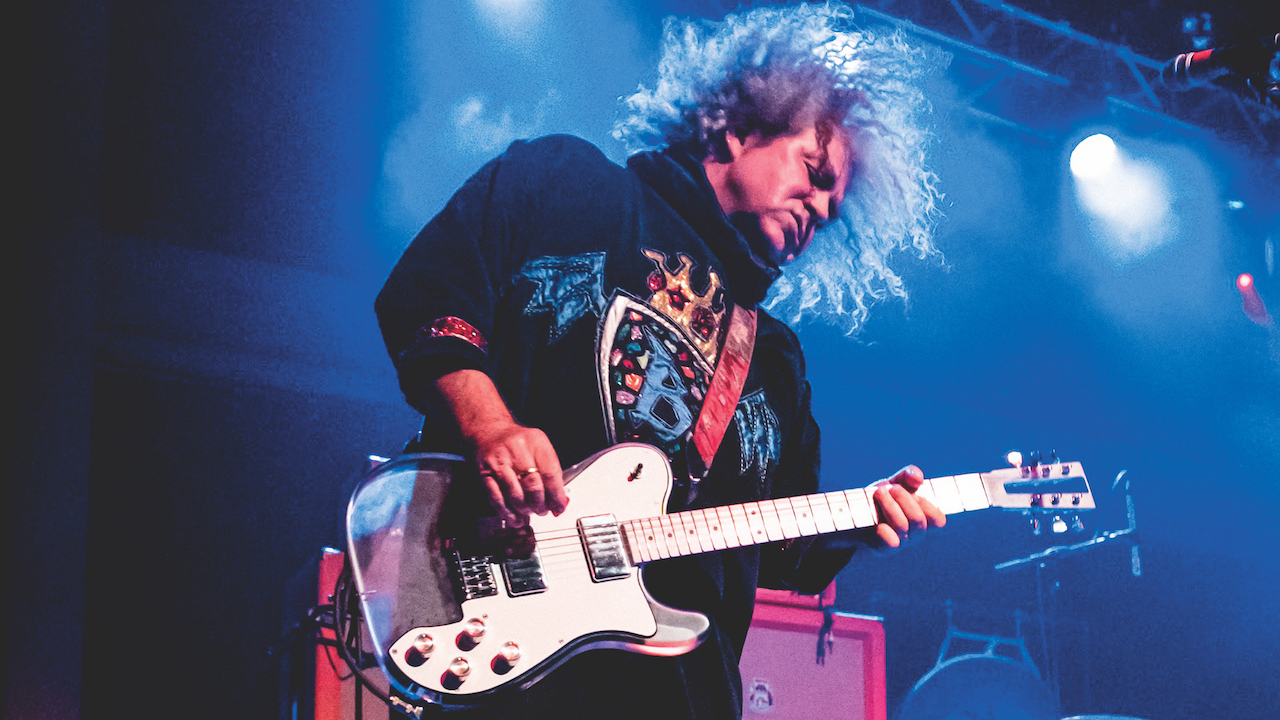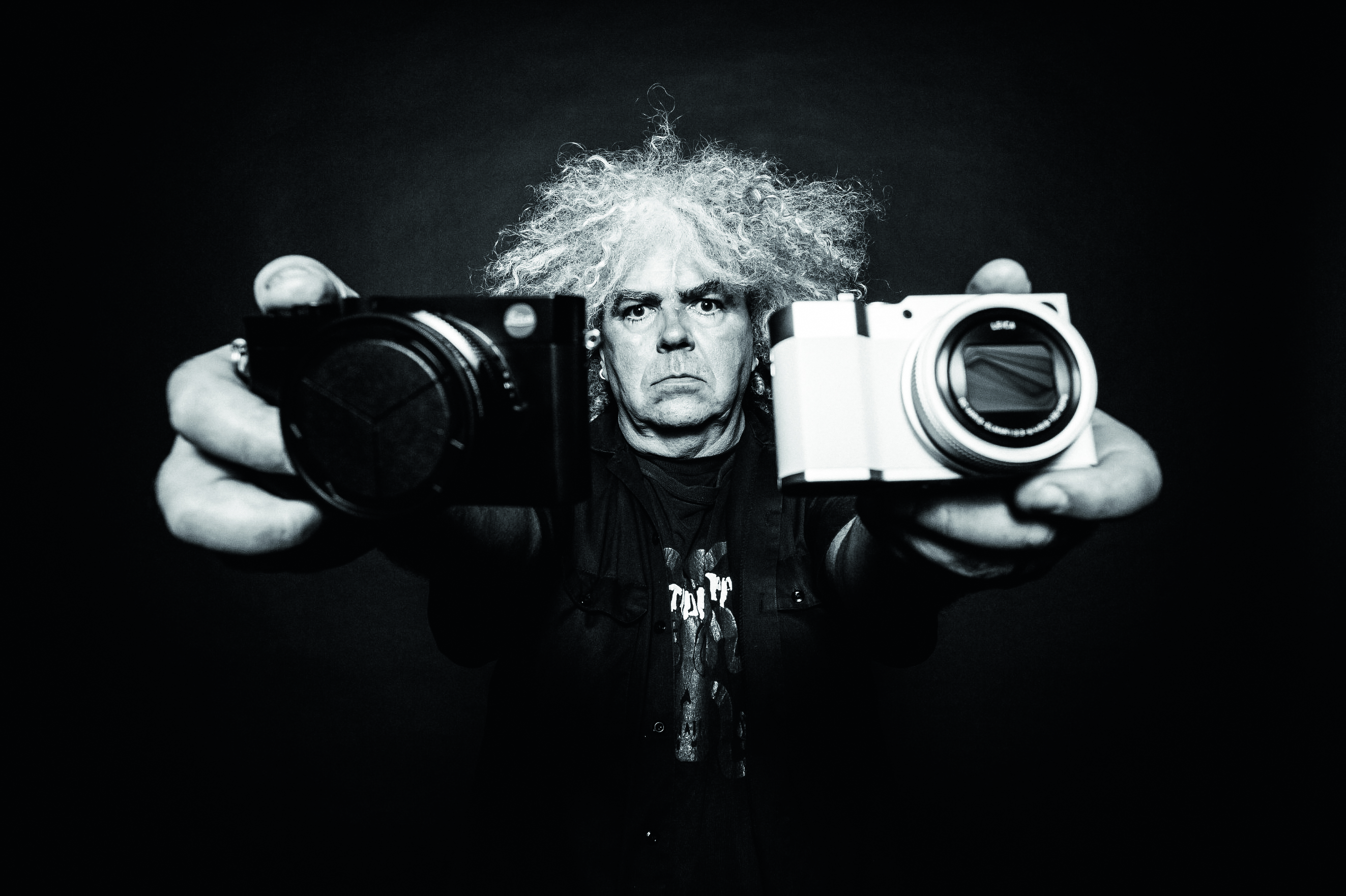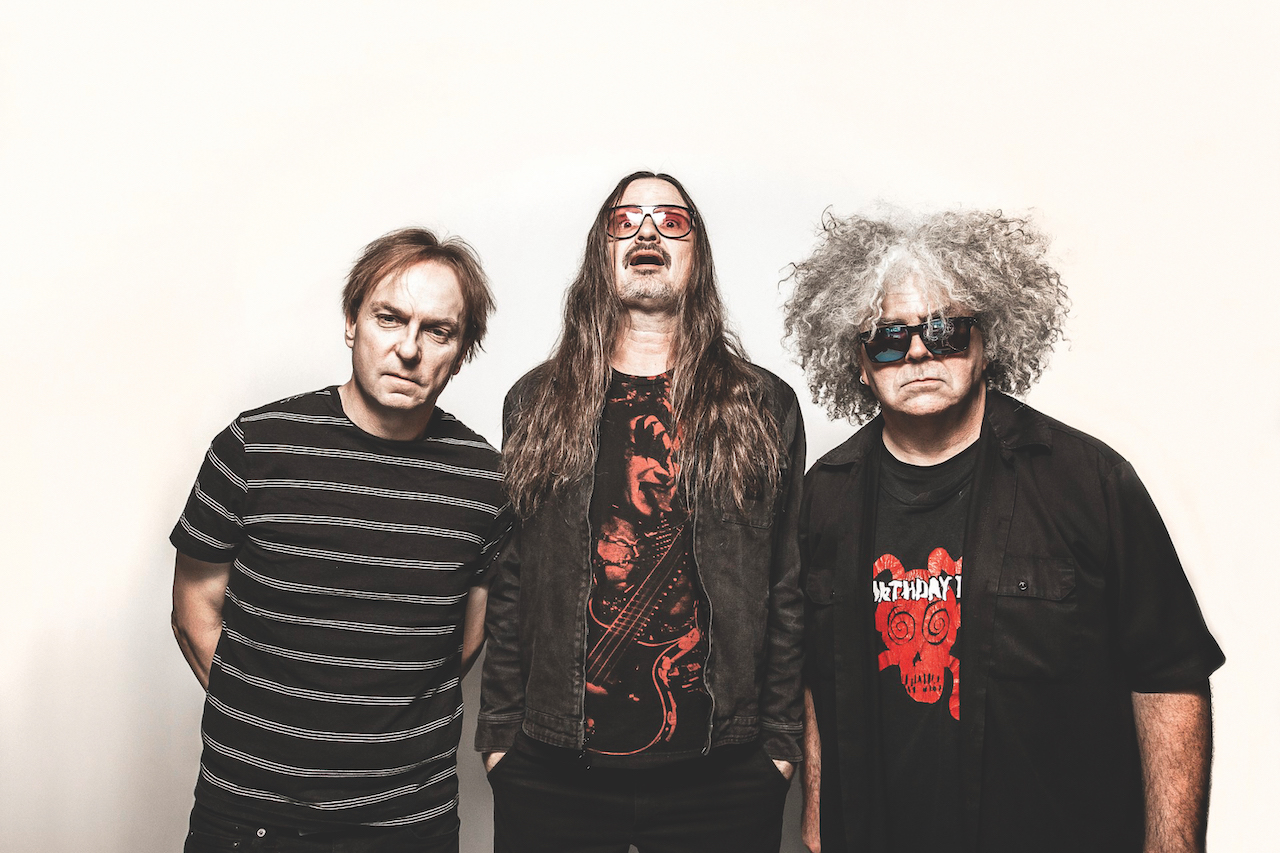“If you don’t want to play Eruption by Van Halen, don’t practice it. There’s no reason to do it. You want to practice what you want to do”: Buzz Osborne on how he forged a unique voice in heavy guitar playing – and why new guitars are better than vintage
As a cult hero of underground American rock, Buzz Osborne describes his band Melvins as “an avant-garde, weird thing”. And as a guitarist, he’s all about heaviness and spontaneity…

Buzz Osborne holds nothing back – not musically or anywhere else in his life. He never has, and probably never will. One listen to Melvins’ latest record Tarantula Heart will tell you as much.
Osborne and company are out for blood via music. But don’t dare try and box them in. Even if you tried, Osborne would sidestep you, spin around, come up grinning, and bludgeon you with his aluminium guitar. That’s just how it is in the land of Buzz. “I walk out there, and I feel I’ve got the best rig in the whole world,” he says. “Nobody has this, just me. I love it.”
It was way back in 1983 that Melvins formed as a trio in Montesano, a tiny city in Washington state, 100 miles from Seattle. Their debut album Gluey Porch Treatments arrived in 1986, a full five years before the big bang of grunge, and although Melvins eventually signed to major label Atlantic for their 1993 album Houdini, their music was always too crazy and gnarly for mainstream tastes.
Their friend Kurt Cobain was credited as co-producer of Houdini, and played guitar on one track. That album also featured a cover of an early Kiss song, Goin’ Blind. But while their contemporaries sold millions of records, Melvins remained underground cult heroes driven by Buzz Osborne’s maverick sensibilities.
“I wish guitar players were more adventurous,” he says now. “But they’re just not. They seem like the most conservative people on the face of the planet. You can’t get them to do anything left of centre.” His message for Total Guitar readers is simple: “Try something new. You might just like it!”
Tarantula Heart is another exercise in sonic experimentation. It’s remarkable that you’re able to keep the pace that you do.
“I’ve always thought we’re offering something that was not the norm. We’re not part of any musical genre. We get lumped into the grunge thing, but those bands don’t sound like us. I’ve never done that kind of stuff. I’ve always felt we were a different kind of animal.
Get The Pick Newsletter
All the latest guitar news, interviews, lessons, reviews, deals and more, direct to your inbox!
“We’re certainly not for everybody. I mean, I’ve always believed our records should sell millions and millions of copies, but it just doesn’t work out.”
Maybe in 25 years you could be as revered as Frank Zappa?
“Yeah, by the time I’m dead! Yeah, can’t wait! Gosh, that fills me with so much hope. You know what, I’ll take half of that in cash right now!”
Tell us about the creation of Tarantula Heart…
“We recorded most of it two years ago. We have our own studio, so we don’t do things in a normal fashion like most bands do: book two weeks, go in heavy, and prepare to do our record. I’ve done that a lot. I’ve made dozens of records like that. But since we got our own studio, now we can work at our own pace, record stuff, and then go back and listen to it. The clock isn’t ticking, you know?
“Weirdly, it’s like the way Miles Davis recorded. Although it’s not exactly like it, but Miles Davis recorded On The Corner, or any of those records around the Bitches Brew era, where the musicians would jam and then take it from there. So, with that in mind, we’ll lock into stuff that sounds good from these 20-minute jams on a basic riff that I would have.”

How do the guitar tracks come together from there?
“My intention was not to go in and digitally edit stuff together. I have no interest in that because I was looking for something more organic. I’m not interested in being perfect tempo-wise. That sounds alien to me. I think it’s okay, but we never really do that.
“I’m not a click-track guy. We could get something cooler than that. I could never have imagined Miles Davis running a click-track. So, I jammed, and then I took all that stuff, and I spent hours poring over those things, listening for spots that I could write music to.”
That checks out – the record has an off-the-wall, jammy aspect, but it’s well thought out.
“I think it came out great. And if I’d never mentioned all that, no-one would notice. You know what I mean? They would listen to it and go, ‘Oh, it sounds like the drums were first…’ So, what I’m expecting is for people to bitch about something they never would have noticed in the first place. ‘You should have done this, you should have done that.’ You know what? Let’s not ‘should’ me to death. I don’t do well with constructive criticism.”
Do you feel misunderstood?
“Well, I know what I’m doing. Just let me do the driving – I’ll be fine. If you don’t want to hear what we’re doing, there’s plenty of bands out there that will give you whatever you want. Don’t look to us to do that. People should understand that we’re an avant-garde, weird thing. Don’t look to me to be the normal, or us to be the normal band.”
It’s refreshing that you approach things without regard for what people think you should be doing.
“I’m a firm believer in not practicing things you don’t want to play. If you don’t want to play Eruption by Van Halen, don’t practice it. There’s no reason to do it. You want to practice what you want to do.
“And there’s some certain things that I like – and I like a lot of the same guitar players that most people do – but as far as approaching it in a way that would be traditional, I would say that what I’m doing is as if Captain Beefheart and Throbbing Gristle were playing heavy metal together. That’s what I’m going for, with Bob Dylan mixed into it!”
So shredding doesn’t appeal to you?
I'm not interested in being perfect tempo-wise
“I appreciate that kind of stuff. But ultimately, I don’t care about those sorts of things. I’m more interested in how the song works. And I would say as far as live guitar, my favourite would be the ’60s and ’70s-era Pete Townshend, who had little regard for the guitar and the amplifiers themselves. I don’t break guitars like Pete, but I view a guitar, especially live, as a weapon. I’m not here to give you a music lesson. I’m here to give you an emotional lesson.”
Are your studio and live rigs the same?
“I use a wide variety of guitars in the studio. But in the last 15 years, I like brand-new gear. I like brand-new guitars right out of the box. I think they’re better. I’ve sold all my vintage stuff except for my first Les Pauls. I still have my two black Les Pauls I played in the ’90s, but everything else is pretty much brand new.”

You seem to be using your aluminium King Buzzo Standard by the Electric Guitar Company quite often, too.
“They’re fucking great guitars. I use a wide variety of their guitars and they’re amazing. They’re set up like Les Pauls but are completely aluminium with frets just put straight into the neck – there’s no fretboard on them. The neck is the same from the headstock down to the body.
“It’s usually tapered because it has to be or would break, but these aren’t because it’s aluminium. I’ve had people ask me, ‘Where’s the truss rod?’ It’s aluminium – it doesn’t need it. As soon as I picked it up, I was like, ‘Oh, my God, I have to have one of these!’
“There’s nothing like this. These guitars are second to none in the world for weirdness. They will give you something you’re not getting anywhere else. I like the idea that I’m the only person in the world using that exact setup when I walk on stage.”
It’s pretty apparent that you’re unafraid to try new things.
We’ll lock into stuff that sounds good from these 20-minute jams on a basic riff
“Well, one of my favourite authors is Flannery O’Connor. She said about the books that she was writing, ‘If they’re not controversial, then they’re not any good.’ I’ve never forgotten that. Another thing I really liked was when Gene Simmons said ‘be as peculiar as possible’. I’ve repeated that over and over.”
Does it drive you crazy that people try to put the Melvins in a genre box?
“It just tells me that they don’t listen to our music. They don’t really listen to what we’re doing. You know, they say we’re ‘sludge metal,’ but have you ever listened to our stuff? Sure, that certainly is something that we do. But we’ve done lots of weird stuff. Like last year, we did an entire album of Throbbing Gristle covers. Sludge metal, right? Whatever!”
“Nobody’s doing what we’re doing. Nobody. I play with super-talented guys. That helps because there’s nothing that I could throw at them that they can’t do. I’m in a really, really good position. I can reach out, and we can make records that don’t sound like anything else out there.
“There’s really crazy stuff, like Pain Equals Funny – that’s 19 minutes long, and it’s my favourite song on the new record. It’s one of my favourite songs that we’ve ever done. It works perfectly. It doesn’t have a linear journey. So, that’s who we are, and I couldn’t have done it without the guys I have around me.”
- Tarantula Heart is out now on Ipecac.
Andrew Daly is an iced-coffee-addicted, oddball Telecaster-playing, alfredo pasta-loving journalist from Long Island, NY, who, in addition to being a contributing writer for Guitar World, scribes for Bass Player, Guitar Player, Guitarist, and MusicRadar. Andrew has interviewed favorites like Ace Frehley, Johnny Marr, Vito Bratta, Bruce Kulick, Joe Perry, Brad Whitford, Tom Morello, Rich Robinson, and Paul Stanley, while his all-time favorite (rhythm player), Keith Richards, continues to elude him.
“Such a rare piece”: Dave Navarro has chosen the guitar he’s using to record his first post-Jane’s Addiction material – and it’s a historic build
“The best guitar player I ever heard”: Nashville guitar extraordinaire Mac Gayden – who worked with Bob Dylan, Elvis, Linda Ronstadt and Simon & Garfunkel – dies at 83








![[from left] George Harrison with his Gretsch Country Gentleman, Norman Harris of Norman's Rare Guitars holds a gold-top Les Paul, John Fogerty with his legendary 1969 Rickenbacker](https://cdn.mos.cms.futurecdn.net/TuH3nuhn9etqjdn5sy4ntW.jpg)





